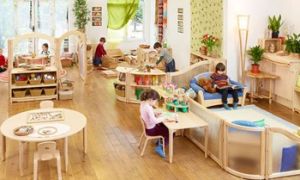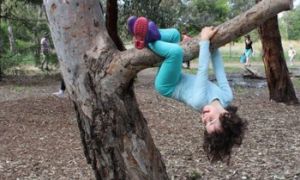Firstly you need to think about whether you want to become a Director. Just because you are a good educator may not mean you will be a good Director. If you do not enjoy managing people, dealing with staff problems, talking about some things as they are uncomfortable topics to deal with, talk to parents who complain, do lots of mundane paperwork and sitting in an office staring at a computer screen, then most likely being a Director is NOT for you. There is no particular way to ‘become a Director’ however you can maximise your chances by doing some things.
Experience Needed For A Director Role
To be a good Director you need experience, not necessarily management experience but experience as an assistant, as a group leader so that when you have staff coming to you and talking to you, you are giving them advice or suggestions that make sense because YOU have tried and tested them yourself. There is nothing worse than someone sitting in an office who thinks up of ‘ways to make things better’ when in fact they have never stepped foot in a room and actually worked with children so really do not know the first thing about it. You will be more respected as a Director if you have had and continue to have hands-on experience. Be prepared to still clean the toilets and get your hands dirty, just because you are the boss doesn’t mean you delegate those things to others.
Qualifications Needed For A Director Position
To be a Director you should have your Diploma of Children’s Services (Early Childhood Education and Care) as your minimum qualification. To further qualify for the director position the Advance Diploma of Children’s Services will assist you develop the necessary skills in being a director. The Advance Diploma qualification primarily focuses on leadership and management skills while managing a childcare setting. It covers topics such as reflecting on professional practices, managing workplace issues, mentoring, supporting staff etc. These topics are only covered by the Advance Diploma qualification. Even though the Advance Diploma qualification is a necessity for Directors as it supports the directors role, a Diploma of Children’s Services qualification is acceptable for the director’s position as well without having completed the Advance Diploma. When working as a director, with only a Diploma qualification, centre management may ask you to enrol in an Advanced Diploma course. If so, you will be notified when applying for the position in the first place. However, if you are planning to do a Bachelor Degree in Early Childhood I would skip the Advance Diploma qualification and go straight into your degree as for the time it takes to complete your Advanced Diploma and the credit you will get for it will not be worth it.
Job Roles Before Becoming A Director
The easiest way to the Directors chair is with Assistant Director experience (aka 2IC). In this position you would have had some management experience which will help you. Depending on your centre you may have knowledge of rosters and the software programs used.
Responsibilities of A Director
Being a Director is not easy, there is a lot to do and a lot of responsibility comes with this job and you are in charge of most things and when things do not go right, you have to do the explaining. However it is a highly rewarding job even if you are non contact, which is a Director who doesn’t teach in a room. A lot of centres, especially smaller centres will have contact Directors who actually teach and do their duties, though the teaching may not be equivalent to full time. In most cases a contact Director will be the ECT (Kindy Teacher). Director responsibilities also include but not limited to the following:
- knowledge and understanding of the NQS, EYLF, Education and Care Services National Law and the Education and Care Services National Regulations
- professional development, supervision and performance management of staff
- quality assuring the development and implementation of appropriate programmes for the children attending the service, reflecting an approved learning framework
- maintenance of up-to-date policies and procedures as required by the relevant regulations
- maintaining at least the minimum staff to child ratios as required by the relevant regulations
- facilitating communication between staff and parents
- ensuring children’s records such as enrolments, emergency contacts, medical, and developmental progress, are kept up-to-date
If you are going to be a Director do some reading and research as you do have to be aware of regulations, policies, legislation etc. You also need to be aware of teaching methods and practices as well as different ways of programming and planning, theorists and schools of thought as you will be the main mentor for most of your staff.
Tips and Strategies On Being A Director
Being a Director within an early childhood setting is a special mix of caring, understanding your staff and knowing how you want the centre to operate. The following tips can help you with idea on how to be a great director to the children, staff, families and the community.
- be the Director you would want to have and you cannot go wrong
- be friendly, approachable but professional
- don’t assert your authority unnecessarily & just because you can
- if you do not know something, ask, find out and don’t pretend you do
- learn from your staff and they will learn from you
- work with staff to help them learn to provide high quality care
- keep up with what is happening in all areas of the centre, including the kitchen
- be organized and do paperwork correctly and on time
- use what you know about children, and your own common sense, to make sound management decisions
- be honest and clear when talking to your staff
- listen carefully to what your staff members tell you
- give direct and clear answers
- show your staff you respect them
- make sure your staff knows how to do their jobs using best practices, means doing things the right way
- give staff feedback, congratulate them on what they do that is right and help them learn to correct mistakes
- when it all gets a bit much go and play with the children, you will remember very quickly why you do the job you do
Personally I found it hard to become a Director straight out of a room with no Assistant Director experience; however I persisted and managed to get a position. Once you have the experience under your belt you would not find it a problem to find another similar position.
Whether you are the director or a small or large centre, it is your responsibility to make sure that each child is receiving the very best care. This means that each child will be treated with love and respect and supported in their early childhood development and learning.







 As an Educator in Australia, your pay rate falls under the Children’s Services Award 2010. This award states the minimum amount that an employer can
As an Educator in Australia, your pay rate falls under the Children’s Services Award 2010. This award states the minimum amount that an employer can When working as a qualified Early Childhood Teacher (with a university degree) within a service, your rate of pay will come from the Educational Services
When working as a qualified Early Childhood Teacher (with a university degree) within a service, your rate of pay will come from the Educational Services When working as a Diploma Qualified Educator your pay rate is from the Children's Services Award 2010. This Award states your minimum rate of pay
When working as a Diploma Qualified Educator your pay rate is from the Children's Services Award 2010. This Award states your minimum rate of pay When working as a Cert 3 Qualified Educator, your pay rate is from the Children's Services Award 2010. This Award states your minimum rate of
When working as a Cert 3 Qualified Educator, your pay rate is from the Children's Services Award 2010. This Award states your minimum rate of Educational Leaders play a crucial role in their early childhood service by ensuring that the educational program aligns with best practices and supports the holistic
Educational Leaders play a crucial role in their early childhood service by ensuring that the educational program aligns with best practices and supports the holistic In early childhood education and care, ratios are more than a technicality—they are a frontline safeguard. Every child deserves responsive supervision, emotional connection, and developmental
In early childhood education and care, ratios are more than a technicality—they are a frontline safeguard. Every child deserves responsive supervision, emotional connection, and developmental With the new national child safety reforms kicking in on 1 September 2025, early childhood services like yours have a real opportunity to lead the
With the new national child safety reforms kicking in on 1 September 2025, early childhood services like yours have a real opportunity to lead the Here’s a comprehensive Mobile Phone and Smart Watch Policy tailored for early childhood education and care (ECEC) services in Australia, aligned with the latest 2025
Here’s a comprehensive Mobile Phone and Smart Watch Policy tailored for early childhood education and care (ECEC) services in Australia, aligned with the latest 2025 The Sea of Fish Challenge is a national initiative that invites children, educators, families, and communities to create and display fish artworks as a symbol
The Sea of Fish Challenge is a national initiative that invites children, educators, families, and communities to create and display fish artworks as a symbol Across the early childhood education and care sector, educators are sounding the alarm: current staffing ratios are insufficient to deliver safe, meaningful, and developmentally appropriate
Across the early childhood education and care sector, educators are sounding the alarm: current staffing ratios are insufficient to deliver safe, meaningful, and developmentally appropriate


